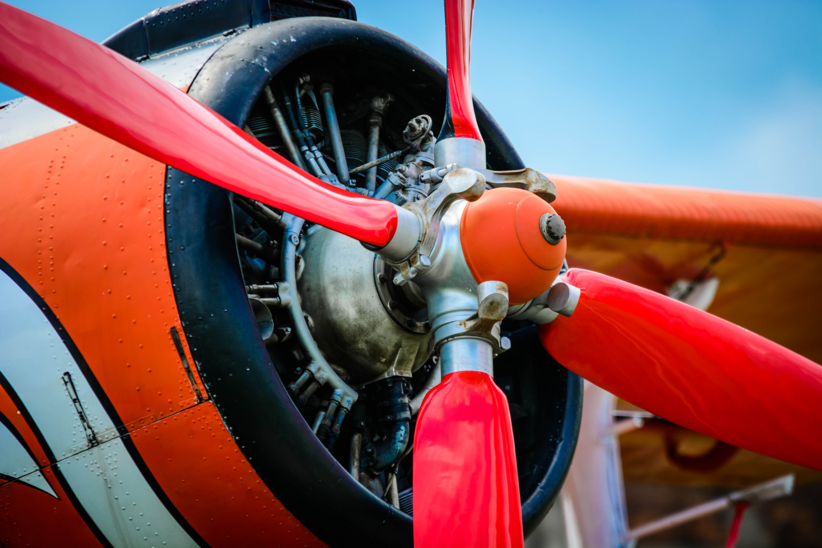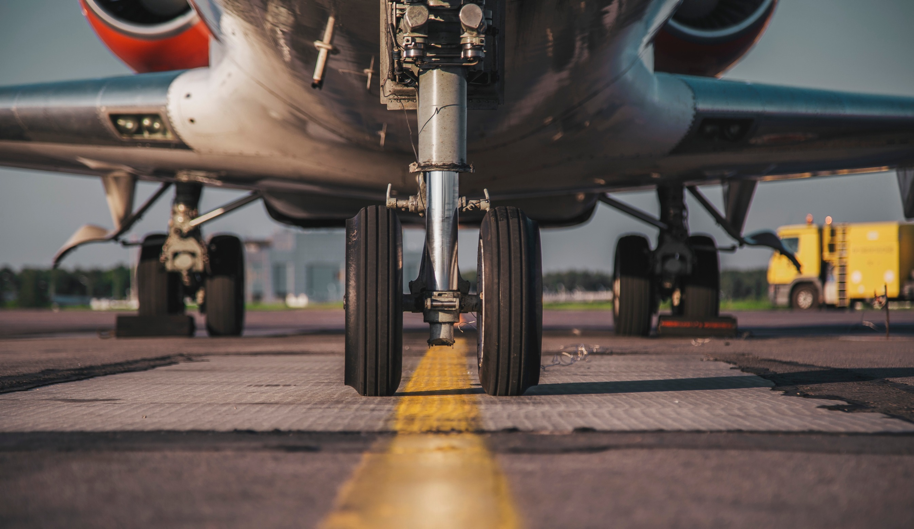Aircraft Grease Alternatives: Pros and Cons Analysis - SkyGeek
Jan 3rd 2024

Pros and Cons: Analyzing Aircraft Grease Alternatives
Your aircraft has a lot of moving parts and it's important to keep those parts well lubricated. Proper lubrication is vital to aircraft maintenance and safety, as it ensures the many moving parts operate smoothly and reliably. Aircraft lubricants not only keep components moving smoothly, but they also help prevent friction, promote heat dissipation and prevent buildup that can cause damage. Different greases and lubricants are used all over the aircraft, not just in the engine. You can find greases and lubricants in components like wheel bearings, landing gear and even control mechanisms. Without the right lubrication, precision suffers and safety can be compromised, making routine inspection and maintenance of these lubricants essential.
Like with all industries, the aviation world has evolved. The demanding conditions of aviation, including extreme temperature fluctuations and exposure to environmental contaminants, often challenge the limits of traditional greases. Standard lubricants have been replaced with synthetics, offering the same level of lubrication, but with small enhancements that make your aircraft run more efficiently. Synthetic greases and lubricants can often handle higher loads and last longer than standard aircraft greases without drying out or attracting debris. Of course, there are some drawbacks to using synthetic grease, so it's important to carefully evaluate both standard and synthetic options to choose the best lubricant for your aircraft’s specific needs.
Understanding Standard Aircraft Grease
Not all greases are created equally, and those designed specifically for aviation use are known as aviation greases. These greases are typically composed of a high-quality base oil — often mineral or synthetic oil — combined with a thickener such as lithium, calcium or complex soap, plus carefully selected additives. These additives enhance properties like oxidation resistance, water resistance and corrosion inhibition. Aviation grease in general can withstand the elements while providing a high level of protection against friction and corrosion. Aviation grease tends to be semisolid and when applied, allowing it to form a protective barrier on the surface. Aviation greases are formulated to meet rigorous standards such as MIL-PRF-81322 or MIL-PRF-23827, ensuring consistent performance under demanding conditions.
Aviation grease is usually semisolid at room temperature and forms a durable, protective barrier on metal surfaces. This barrier reduces friction, prevents metal-to-metal contact and guards against corrosion by forming a physical barrier that blocks oxygen and moisture from reaching the metal parts. Since aircraft operate in extreme environments, aviation grease must withstand these challenges without breaking down or losing its protective qualities.
Traditional aircraft greases provide several advantages. They ensures reliable lubrication of moving parts like wheel bearings, landing gear and control systems, contributing to smooth operation and reducing wear. They also maintain their consistency and protective properties over extended periods, helping to minimize maintenance needs and enhance safety. However, while traditional aviation greases offer solid performance, they can degrade over time, attract debris and clog sensitive components. To address these limitations, many operators now prefer synthetic greases, which offer improved durability, longer service life and better resistance to harsh operating environments.
Exploring Potential Alternatives to Traditional Greases (Categorized)
Many aviators have turned to alternatives to aircraft grease in pursuit of better performance, longer service life and reduced overall costs. There are several alternative lubricants available and each offers distinct advantages and potential drawbacks. It’s important to understand all of the pros and cons of aircraft grease alternatives in order to decide which one best fits your aircraft’s needs and operating environment.
- Synthetic Aircraft Grease:
- Pros: Superior performance across extreme temperatures (both high and low), longer service life, and excellent resistance to oxidation. These qualities help reduce maintenance frequency and downtime.
- Cons: Higher initial cost compared to traditional greases and potential incompatibility with certain elastomers or previously used greases. Requires careful inspection and evaluation before use.
- Biodegradable Aircraft Grease:
- Pros: Environmentally friendly formulations that reduce concerns about disposal and contamination, supporting the aviation industry’s growing focus on sustainability.
- Cons: May not perform as well under extreme conditions, often requiring more frequent reapplication and can present compatibility challenges with some aircraft components.
- Dry Lubricants for Aircraft (e.g., PTFE, Molybdenum Disulfide):
- Pros: Effective in extreme temperatures, resistant to dust and debris and excellent at preventing galling on metal surfaces.
- Cons: Limited load-carrying capacity in some applications, can wear away over time and require careful application for optimal effectiveness. (See our for more details.)
- Specialty Aircraft Grease (e.g., Ceramic-Based):
- Pros: Outstanding high-temperature performance and non-conductive properties, making them suitable for specialized applications.
- Cons: Generally very expensive and may require specific handling or application techniques.
No matter which alternative lubricant you select, it’s critical to choose one that is safe and appropriate for your aircraft’s operational environment. The aviation industry is increasingly prioritizing eco-conscious lubricants, with new options becoming available all the time that perform better than traditional greases while helping to minimize environmental impact from spills or runoff.

Aircraft Lubricant Comparison
When selecting an alternative grease or lubricant for your aircraft, it’s essential to look at the bigger picture. Performance claims can be intriguing, but each alternative presents unique challenges, and the wrong choice can lead to premature wear, increased maintenance or even safety concerns. Keep the following factors in mind when choosing aviation grease alternatives for your aircraft:
- Operating Temperature Range:
Ensure the lubricant is rated for the full range of temperatures your aircraft will encounter, especially if operating in arctic or high-altitude conditions. Some alternatives, like synthetic or dry lubricants, offer superior performance at extreme high and low temperatures. - Load and Speed Requirements:
Consider the load and speed requirements of the lubricated parts. High-speed bearings or heavily loaded components may require specific formulations with high film strength and load-carrying capacity. It’s important to match the lubricant to the highest load and speed requirement of the component you are lubricating. - Material Compatibility:
Not all greases play well with all materials. Verify that the lubricant is compatible with every part it may come in contact with, including seals, elastomers and metals found in your aircraft. Incompatible combinations can cause major problems. - Environmental Regulations:
If your operations involve environmentally sensitive areas, consider biodegradable or eco-friendly lubricants. These reduce the risk of environmental harm from leaks or runoff and may help with regulatory compliance. - Cost Analysis:
While alternatives like synthetic or specialty greases may come at a higher initial price, their longer service life and reduced maintenance requirements can offer significant cost savings over time. Analyze potential costs before making a decision. - Maintenance Procedures:
Some alternatives may require different application methods or intervals. Make sure your maintenance team is trained and equipped to handle these differences without compromising efficiency or safety. - OEM Recommendations and Specifications:
Always consult the aircraft or component manufacturer’s guidelines. Many OEMs specify lubricants that meet particular MIL-SPEC or other certification standards. Using the wrong lubricant can void warranties or potentially lead to equipment failure.

With so many aircraft lubricants available, choosing between traditional grease and modern alternatives depends on factors like your operating environment, budget and maintenance goals. Synthetic greases offer extended service life, better performance in extreme temperatures and improved oxidation resistance, but they often come with a higher upfront cost and material compatibility can be a concerns. Biodegradable greases support environmental initiatives and simplify disposal, though they may require more frequent applications. Dry and specialty lubricants provide targeted benefits, but are often lacking in load capacity and can be cost-prohibitive.
Because each option has its own advantages and limitations, it’s essential to evaluate your specific needs and always follow OEM specifications and industry standards. When in doubt, consult an expert at GracoRoberts or explore product recommendations tailored to your application. Making the right choice up front can lead to safer operations, longer service life and lower long-term costs.
